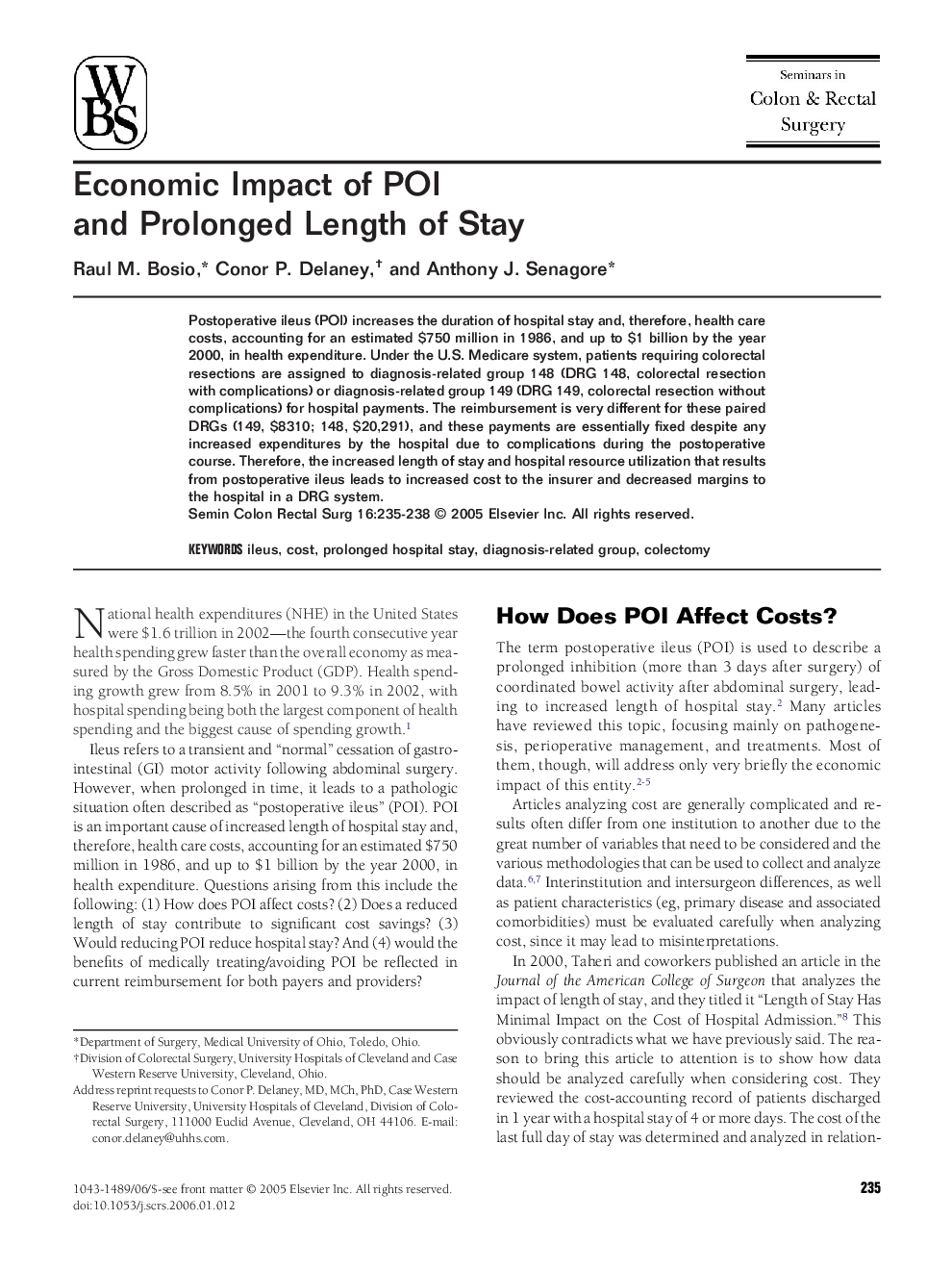| Article ID | Journal | Published Year | Pages | File Type |
|---|---|---|---|---|
| 9256507 | Seminars in Colon and Rectal Surgery | 2005 | 4 Pages |
Abstract
Postoperative ileus (POI) increases the duration of hospital stay and, therefore, health care costs, accounting for an estimated $750 million in 1986, and up to $1 billion by the year 2000, in health expenditure. Under the U.S. Medicare system, patients requiring colorectal resections are assigned to diagnosis-related group 148 (DRG 148, colorectal resection with complications) or diagnosis-related group 149 (DRG 149, colorectal resection without complications) for hospital payments. The reimbursement is very different for these paired DRGs (149, $8310; 148, $20,291), and these payments are essentially fixed despite any increased expenditures by the hospital due to complications during the postoperative course. Therefore, the increased length of stay and hospital resource utilization that results from postoperative ileus leads to increased cost to the insurer and decreased margins to the hospital in a DRG system.
Related Topics
Health Sciences
Medicine and Dentistry
Gastroenterology
Authors
Raul M. Bosio, Conor P. Delaney, Anthony J. Senagore,
